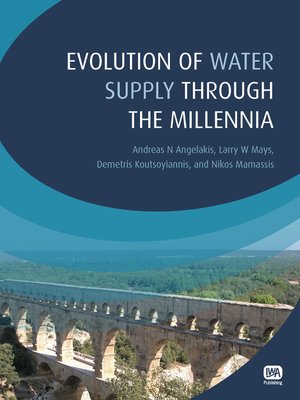
Sign up to save your library
With an OverDrive account, you can save your favorite libraries for at-a-glance information about availability. Find out more about OverDrive accounts.
Find this title in Libby, the library reading app by OverDrive.



Search for a digital library with this title
Title found at these libraries:
| Library Name | Distance |
|---|---|
| Loading... |
A comparison of the water technological developments in several civilizations is undertaken. These technologies are the underpinning of modern achievements in water engineering and management practices. It is the best proof that "the past is the key for the future." Rapid technological progress in the twentieth century created a disregard for past water technologies that were considered to be far behind the present ones. There are a great deal of unresolved problems related to the management principles, such as the decentralization of the processes, the durability of the water projects, the cost effectiveness, and sustainability issues such as protection from floods and droughts. In the developing world, such problems were intensified to an unprecedented degree. Moreover, new problems have arisen such as the contamination of surface and groundwater. Naturally, intensification of unresolved problems led societies to revisit the past and to reinvestigate the successful past achievements. To their surprise, those who attempted this retrospect, based on archaeological, historical, and technical evidence were impressed by two things: the similarity of principles with present ones and the advanced level of water engineering and management practices.
Evolution of Water Supply Through the Millennia is intended for engineers in water resources companies, hydraulic design companies, and water Institutes. It can be used for all courses related to water resources.
Authors: Andreas N. Angelakis, Institute of Iraklion, National Foundation for Agricultural Research (N.AG.RE.F.), Greece, Larry W. Mays, School of Sustainable Engineering and the Built Environment, Arizona State University, USA, Demetris Koutsoyiannis, School of Civil Engineering, National Technical University of Athens, Greece, Nikos Manassis, School of Civil Engineering, National Technical University of Athens, Greece.







